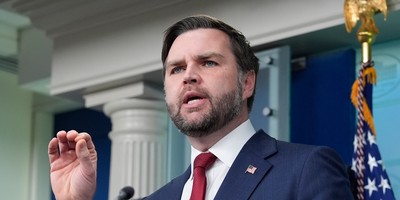WASHINGTON -- The word is powerful.
In fact, one might even say the word is power.
No one is more acutely aware of this than Jeffrey Gedmin, president of Radio Free Europe/Radio Liberty (RFE/RL).
Yes, it's still around.
The Cold War that prompted the creation of Radio Free Europe may have ended. And The Wall did come tumbling down. But the voice of liberty still travels over the airwaves the old-fashioned way -- as well as by television, Internet and even text-messaging -- to reach pockets where freedom is uncommon currency.
Today, the nonprofit, U.S.-funded RFE reaches 30 million people, in 28 languages, in 20 countries, including Afghanistan, Iran, Iraq, Russia and the Central Asian republics. All for the relatively low price of $83 million.
That is approximately the cost of four Apache helicopters and, inarguably, provides a significant bang for the buck.
"Give me the equivalent of six Apaches and we'd probably change the world," said Gedmin over coffee while in Washington this week.
There's something charming, even quaint, about the notion of Radio Free Europe, which was created in 1949 to broadcast news and current events programs to countries behind the Iron Curtain. (In 1975, RFE merged with Radio Liberty, which had been broadcasting to listeners inside the Soviet Union since 1951.)
There's nothing charming, however, about the need that still drives the enterprise -- millions of people without access to information that isn't state-controlled.
Recommended
Gedmin, who took over RFE in 2007 after a stint with the Aspen Institute in Berlin, has hundreds of stories about RFE's works of "public diplomacy." To those who tune in, that disembodied voice from afar can be a literal lifeline -- or a path to justice. Call it "Sleepless in Sherberghan."
Here are two quick takes from Afghanistan, where RFE/RL boasts a 60.6 percent market share:
-- A couple of months ago when a young girl was raped -- a common and underreported event -- President Hamid Karzai heard about it on Radio Free Afghanistan and instructed his staff to get details. As a result, the girl and her family were provided assistance, and the government demonstrated a strong position against the all-too-common trend of older men raping girls with impunity.
-- In Kabul, the parents of a critically ill girl called the radio station when all else failed. Voila, doctors materialized.
Contrary to misperceptions that began decades ago, RFE/RL is not a propaganda arm of the CIA, though the CIA did for a time funnel funding from Congress. That arrangement ended in 1971.
Nor does Gedmin's crew try to spread anti-Muslim messages, as some critics have suggested. That is, unless one considers it anti-Muslim to insist that women not be stoned or that gay teens not be hanged. Gedmin describes his own philosophy as "paternal libertarianism."
Otherwise, RFE/RL is a news organization like any other that reports on events and issues, including women's rights.
This is not pleasing to everyone. In Afghanistan, Taliban insurgents routinely attack radio towers and insist on equal time for their doubtless heart-warming message. In Iran, the government jams the signal, except between midnight and 6 a.m. (a money-saving strategy), and tries to intimidate the 40 Iranian correspondents, who live and work in Prague. The Iranian journalists often receive letters ordering court appearances and fines, followed by threats to confiscate family members' homes in Iran.
Last year, correspondent Parnaz Azima, a beloved Iranian scholar best known for translating Ernest Hemingway, was detained for several months when she returned to Iran for a visit.
The Iranian government finally released Azima, who holds dual U.S.-Iranian citizenship, but erected bureaucratic obstacles to prevent her from visiting her elderly mother. If she returns, in all likelihood, she would be arrested for such crimes as reporting on "sensitive" stories.
Azima, says Gedmin, is Iran's "worst nightmare": a woman with standing who refuses to play by the rules.
Keeping voices such as Azima's free and available to others is a continuing challenge as Congress weighs spending priorities. Relatively speaking, $83 million is peanuts, as is the sum total of $800 million (less than the cost of one stealth bomber) that America spends on all international broadcasting efforts.
Gedmin, who is one of the signatories to a 1998 letter urging President Bill Clinton to overthrow Saddam Hussein, is hardly a touchy-feely guy. But he appreciates that the war of ideas is best fought with the "weapon of the word."
Give that man six Apaches.

























Join the conversation as a VIP Member